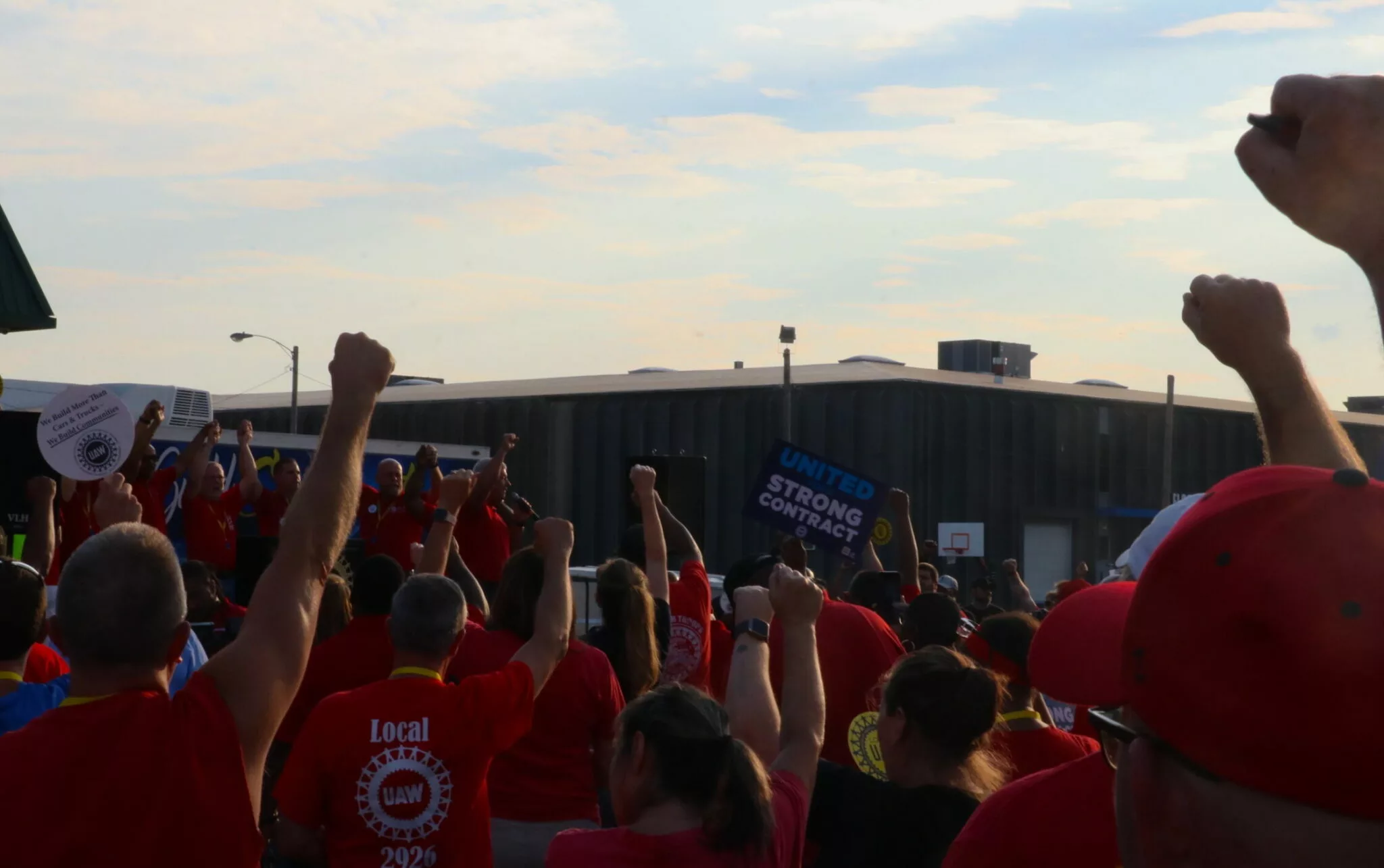The UAW strikes are working, and now Kentuckians are joining in

by Jason Bailey, Kentucky Lantern
The United Auto Workers’ (UAW) Stand Up strikes came to Louisville last night when the 8,700 workers at the massive Ford Kentucky Truck Plant held a surprise walk out. They join the 25,300 employees now on strike at other Big Three facilities across the country.
And the movement they’re leading is gaining momentum — the strikes are popular with the public and infectious with workers. They’re drawing on the energy of recent labor efforts at Starbucks, UPS, Hollywood and elsewhere. And in the UAW’s case, they’ve struck a chord by calling out eroding compensation and unjust transitions that have harmed production workers across the economy in recent decades.
Now the members of Louisville’s UAW Local 862 could powerfully shape the outcome of these negotiations. The local says they are responsible for 54% of Ford’s North American profits including through the production of SUVs and Super Duty pickups.
Grandson of unionized auto workers who moved to Indiana from Kentucky and Tennessee, Shawn Fain is unflinching in his vision that the UAW’s fight is about the future of the broader American economy.

UAW President Shawn Fain. (Photo by Ken Coleman/Michigan Advance)
Ford is now a special target of UAW after some progress in negotiations with General Motors, which recently conceded to putting new electric vehicle (EV) and battery manufacturing facilities under the master UAW contract. The need for good union jobs in the transition to EV production at Ford and Stellantis is still one of the major sticking points in the negotiations.
Not coincidentally, on the same day the Louisville Truck Plant workers hit the bricks, Ford Blue Oval SK battery facilities under construction in Kentucky and Tennessee announced a starting salary increase for their not-yet-union job openings. Solidarity is contagious, and these corporations are worried.
That’s why the Big Three are starting to make other concessions as well. That includes over 20% wage increases, agreements to bring back cost of living adjustments that had disappeared in recent years, and a shorter path for workers to reach top wage rates. But along with the need for a full just transition to EV jobs, the companies’ wage proposals fall short after years of failing to keep up with inflation and in the context of soaring CEO pay. And the UAW is rightly calling for an end to employment tiers that have denied pensions to workers hired after 2007.
I got to hear directly from UAW President Shawn Fain last week at a policy conference in Detroit. Fain grew up in Indiana as the grandson of unionized auto workers who moved there from Kentucky and Tennessee. His refrain is common sense: these corporations have never been more profitable, and “record profits must mean record contracts.” Auto workers made huge sacrifices when the Big Three nearly failed after the Great Recession, and it’s past time that the workers share in the industry’s tremendous gains.
But Fain is also unflinching in his vision that the UAW’s fight is about the future of the broader American economy. We’ll either continue on the path that enriches billionaires and squeezes the working class, or we’ll build something better. To the plutocrats claiming the UAW aims to wreck the economy, Fain clarifies that they only aim to wreck “their economy.”
Now these Louisville workers are joining the growing picket line, and marching for a place in history.
Jason Bailey is executive director of the Kentucky Center for Economic Policy, www.kypolicy.org.
Top photo: Autoworkers raise their fists as UAW Region 8 President Tim Smith speaks at a rally in Louisville, Sept. 21, 2023. (Kentucky Lantern photo by Liam Niemeyer)
Recommended Posts
Governor Beshear reiterated an “economic surge” at Lexington’s regional business summit
Wed, November 20, 2024

U.S. House Dem quartet calls for Biden to spare lives of federal death row inmates
Wed, November 20, 2024

Members of U.S. Senate back disaster aid request amid increasing storm severity
Wed, November 20, 2024